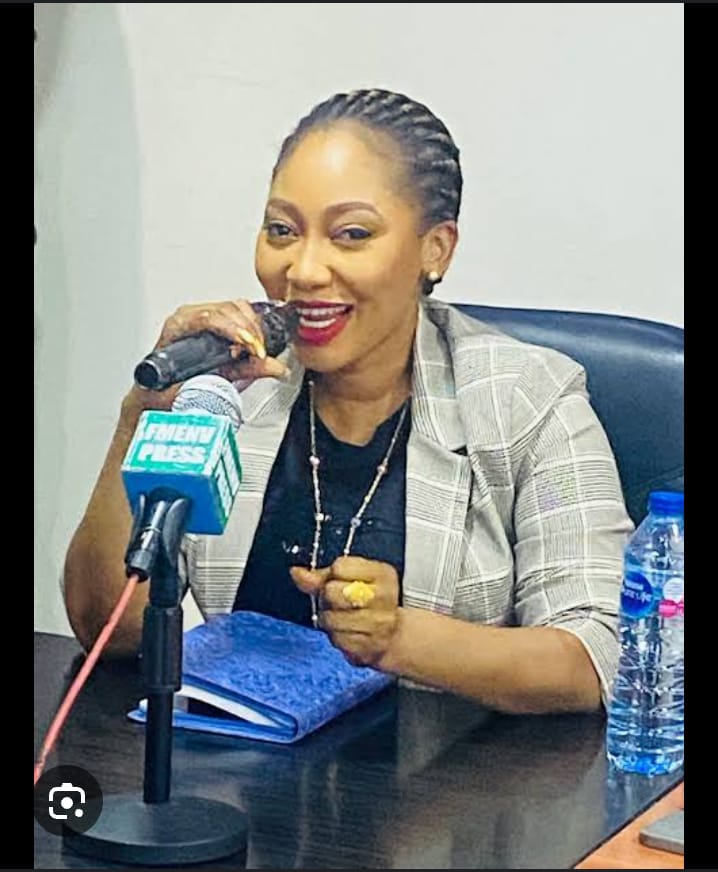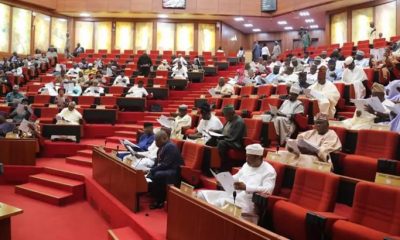News
Prof. Nmadu calls for balance of environmental conservation, food security in Nigeria

Prof Job Nmadu, an agricultural scientist and researcher has called on Nigerian government to tailor its policy towards balancing environmental conservation and food and water security, given that agriculture was central to any nation’s economy.

He stated this in a paper he delivered during the ongoing ceremony of the 24th Annual Conference of the Association which was co-hosted by the University of Agriculture and Environmental Sciences, Umuagwo and Imo State University, Owerri

Nmadu who is the President of Nigerian Association of Agricultural Economists commended the executive governor of Imo State, Senator Hope Uzodimma for his vision for the State, stating that his ongoing economic and agricultural reforms would put the State on the pedestal of growth after his 8 years tenure.
“I must at this juncture congratulate His Excellency, Sen. Chief Hope Uzodinma on his second term and thank him for accepting us. The 3R initiative is laudable and the giant strides in the development of Imo State are a testimony. We align ourselves with the 3R vision and performance so far and urge him to continue, sustain and finish all the good works by the end of his tenure in office.
“The conference is being co-hosted by the University of Agriculture and Environmental Sciences, Umuagwo and the Imo State University, Owerri.
“It is worthy to note that the City of Owerri is hosting the conference for the second time in eight years which is not a common occurrence. For instance, Nsukka hosted the conference in 2001 and has not got a second chance and so it is with most previous hosts. That really shows that this city has achieved a record and goes to show that the Association hold the people and government of Imo State in high regard.
Speaking on the theme: “Environmental Sustainability: Food and Water Security” Prof. Nmadu addressed one of the most pressing challenges of our time, ensuring a balance between environmental conservation and the urgent need for food and water security, he said, agriculture has always been central to our nation’s economy, and as agricultural economists, we are tasked with the critical role of designing systems and strategies that meet the needs of today without compromising the resources available for future generations.
He said, Nigeria, like many other nations, is confronted with growing concerns over climate change, land degradation, water scarcity, and the need to produce enough food to feed its increasing population. These challenges underscore the need for collaborative efforts, innovative policies, and practical solutions.
“The theme of this conference is timely. It invites us to explore how we can sustain our natural resources while ensuring that food and water are secure, accessible, and equitably distributed. From research and innovation to policy formulation and implementation, the contributions that will emerge from our discussions in the coming days are crucial to Nigeria’s agricultural future.
“As we engage in these important conversations, let us be mindful of the real-world implications of our work.
“Our efforts here must go beyond academic discourse to impact the farmers, rural communities, and broader population that depend on agriculture for their livelihoods. We must strive to offer insights that are actionable, scalable, and capable of influencing policy decisions at local, national, and global levels.
“I want to thank our keynote speakers, panelists, and all participants who have made time to be here, and I look forward to the wealth of knowledge and innovative ideas that will be shared. Special thanks to our sponsors and partners who have helped to make this gathering possible. Your contributions are invaluable.
“I encourage us all to approach this conference with open minds and a collaborative spirit. Together, we can create pathways to sustainable agricultural practices that ensure food and water security for all Nigerians, both now and in the future.
“The Pre-conference training on R was held successfully with 13 members bringing the total number trained to 30. The training is an outreach programme and those trained are expected to replicate the training in their various institutions.”
According to him, some of the participants received partial sponsorship since the last conference in Ilorin, while he lamented that some have died.
“Some of our members have passed to the world beyond, among them is Prof. Earnest Aiyedun, a retired professor at the University of Abuja, who was awarded Fellowship in 2022 at the University of Ibadan and perhaps others that I might not be aware of. Let us offer some moment of meditation in their honour.
At the juncture, Ialso congratulate our members that have been found worthy and have been appointed to various positions of responsibility. They include our incoming Vice President I, Prof. Tunde Adepoju, who was appointed by President Ahmed Tinubu as the Chairman of the Governing Council of Federal College of Education, Ilawe Ekiti; Dr. Sunny Mailumo, and a host of others.
He expressed the belief that the association would be fully professionalized after completing its legal instruments which is currently being attended to at the National Assembly, even as it has scaled first reading in the lower legislative chamber.
“I am happy to inform you that the Bill for an act of the National Assembly to charter the Nigerian Institute of Agricultural and Applied Economists has scaled First Reading in the House of Representatives and we are hopeful that the Bill will be passed before the current assembly wind down.
“Nigeria is at a crossroad, thus the need to reset the system. There is urgent need for the Federal Government to rely on empirical evidence to make policies. The surging inflation, which is 32.7% in September is way too bad for a normal functioning economy. There is need to stabilise the foreign exchange rate to allow for stability.
“There is need for the Central Bank of Nigeria to search for fresh strategy to manage the interest rate regime to safe small businesses that are closing their doors on daily basis. And as one of our seniors reiterated, if you can simplify, why complicate?
Speaking on challenges confronting the nation, he said: “There are too many complications bedevilling our economy. Let us seek to simplify our constitution so that it would be easy to operate. Let is rely on evidence and not guess theory.”

























